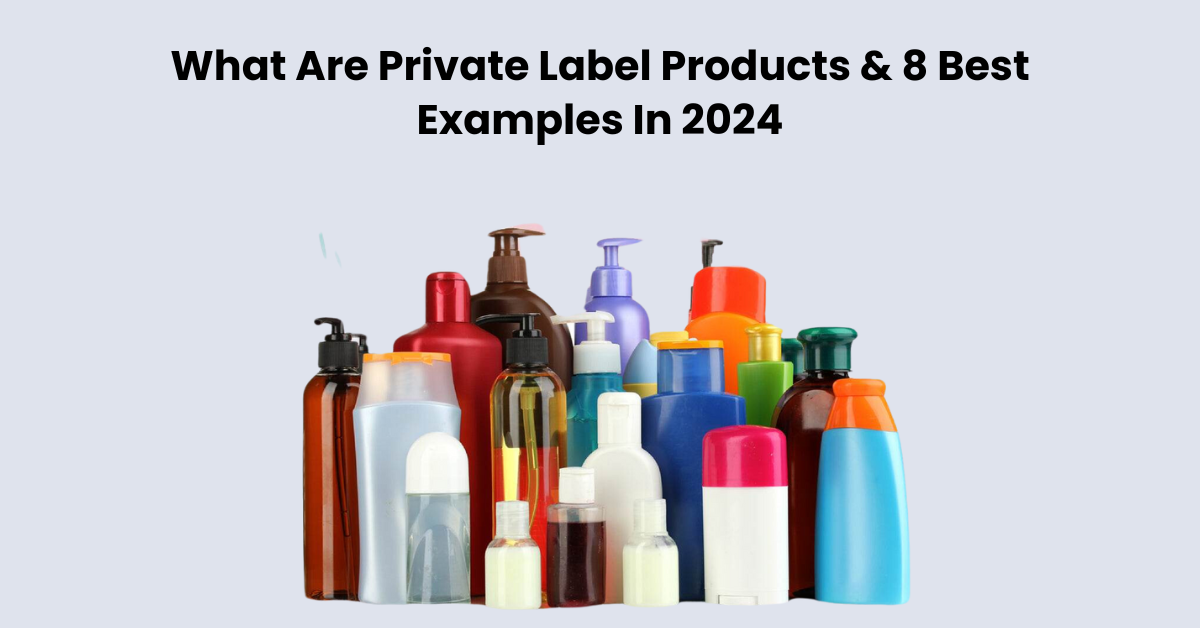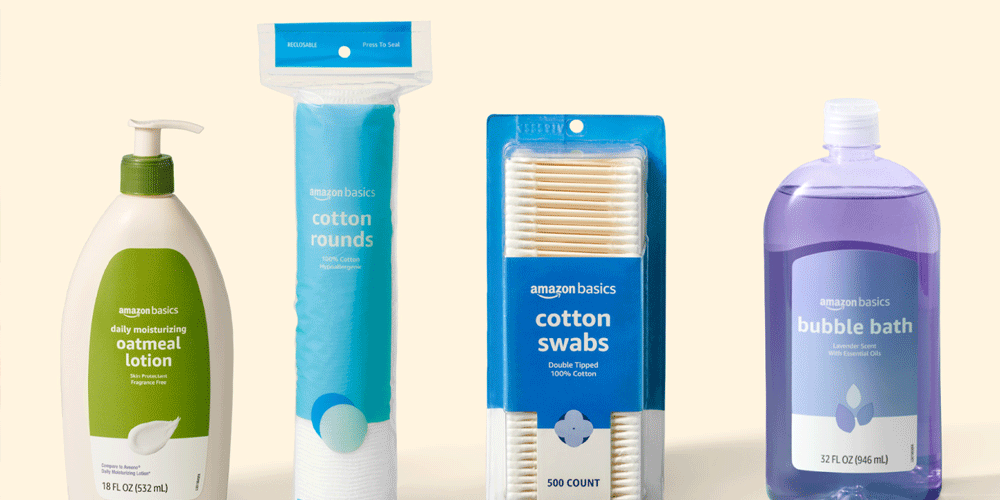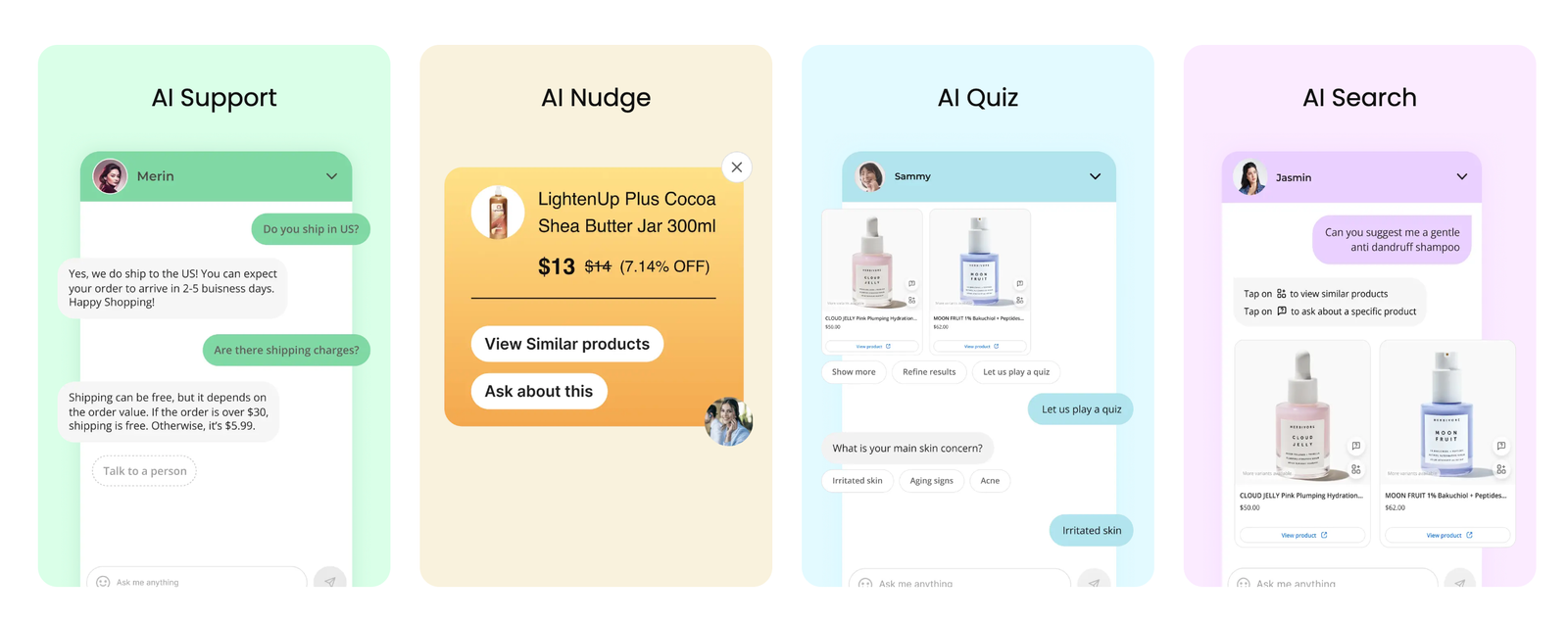What Are Private Label Products & 8 Best Examples In 2024

When a food item caught your eye on the shelf, did you ever reach for the store brand instead of the national name? You're not by yourself! Private label products are becoming increasingly popular since they provide premium goods at affordable prices. However, what precisely are goods under private label? What distinguishes them from the well-known brands you are accustomed to? We'll dissect the idea of private label product brands in this blog post, go over their advantages, and provide eight Private label product lists so you can come across them in 2024 when shopping.
What Are Private Label Products?

Private label products are goods produced by one company (the manufacturer or supplier) and sold under another company's brand name. In other words, a company purchases products from a manufacturer and then markets and sells them under its own brand identity. The private label manufacturers typically produce the goods according to the specifications and requirements provided by the purchasing company.
Best White Label Products To Sell For 2024
Private Label Products Benefits
Private label products offer several benefits to private label products for small businesses:
Brand Control: Private label products allow retailers to maintain full control over branding, packaging, and marketing. This control enables retailers to tailor products to their target audience's preferences and differentiate themselves from competitors.
Higher Profit Margins: Since retailers have more control over the production and pricing of private label detailing products, they can often achieve higher profit margins compared to selling branded products. This is because they can reduce costs associated with brand licensing fees and markup.
Exclusivity: Private label products offer retailers the opportunity to offer exclusive products that are not available through other channels. This exclusivity can attract customers looking for unique items and help retailers build brand loyalty.
Flexibility and Customization: Retailers can tailor private label products to meet specific market demands, preferences, and trends. They have the flexibility to adjust product features, formulations, and packaging based on customer feedback and changing market conditions.
Enhanced Brand Loyalty: Offering high-quality private label products can help retailers build trust and loyalty with their customers. When consumers have positive experiences with private label products, they are more likely to return to the retailer for future purchases.
Competitive Advantage: Private label products can provide retailers with a competitive advantage by offering comparable quality at a lower price point than branded alternatives. This can help retailers attract price-conscious consumers and gain market share.
Control Over Supply Chain: By working closely with manufacturers and suppliers, retailers can exert greater control over the supply chain, ensuring product quality, consistency, and availability.
7 Best Digital Products to Sell on Shopify
Private Label Products: How It Works?
The process of creating and selling private label products to sell involves several steps:
Market Research: Retailers conduct market research to identify consumer needs, preferences, and trends. This helps determine which products have the potential to succeed under a private label brand.
Product Selection: Based on market research findings, retailers select the types of products they want to offer under their private label. These private lable products can range from food and beverages to cosmetics, electronics, clothing, and more.
Supplier Identification: Retailers then identify potential manufacturers or suppliers capable of producing the selected products according to their specifications and quality standards. This often involves sourcing suppliers locally or globally through trade shows, online directories, or networking.
Product Development: Once suppliers are chosen, retailers work closely with them to develop the product formulations, designs, packaging, and branding. This may involve multiple iterations and samples to ensure the final product meets the retailer's requirements.
Quality Control: Throughout the production process, retailers implement quality control measures to ensure that the private label products meet specified standards for ingredients, materials, manufacturing processes, and finished product quality.
Packaging and Branding: Retailers design the packaging and branding for their private label products, incorporating logos, labels, and other visual elements that align with their brand identity and appeal to their target market.
Price Determination: Retailers determine the pricing strategy for their private label products, taking into account production costs, competitor pricing, target market preferences, and desired profit margins.
Distribution and Marketing: Once the private label products are manufactured and packaged, retailers distribute them through their own channels, such as physical stores, e-commerce platforms, or wholesale distribution networks. They also implement marketing strategies to promote the products to consumers, which may include advertising, promotions, social media, and influencer partnerships.
Feedback and Iteration: Retailers collect feedback from customers and monitor sales performance to continuously improve their private label products. This may involve making adjustments to product features, formulations, packaging, or marketing strategies based on consumer preferences and market trends.
8 Best Private Label Products Examples
Here are 8 of the best examples you might encounter on your next shopping trip in 2024:
Coffee: Many grocery stores offer their own private label coffee blends that are roasted to their specifications. These coffees can be just as delicious as national brands, but at a fraction of the cost.
Cosmetics: From private label makeup to skincare products, there are a wide variety of cosmetics available under store brands. These products are often formulated with high-quality ingredients and can be a great way to save money on your beauty routine.
Water Bottles: Reusable water bottles are a must-have for an eco-conscious lifestyle, and private label water bottles offer a stylish and affordable option.
Sheets and Bedding: Private label sheets and bedding can be just as soft and comfortable as national brands, but at a lower price point. You can find a variety of thread counts, materials, and styles to suit your needs.
Snacks: From healthy trail mixes to decadent cookies, private label snacks offer a delicious and affordable way to satisfy your cravings.
Cleaning Supplies: Private label cleaning supplies can be just as effective as national brands, but at a lower cost. Look for store brand all-purpose cleaners, laundry detergents, and disinfectants.
Electronics: Some retailers are even offering their own private label electronics, such as headphones and chargers. These products can be a great way to save money on essential tech items.
Pet Food: Many pet stores offer their own private label pet food lines. These foods are often made with high-quality ingredients and can be a more affordable option for pet owners.
How Manifest AI can help you grow your online private label goods business?

Manifest AI, an AI shopping assistant, offers transformative solutions for online private label goods businesses on Shopify stores. Here’s how it can propel growth:
- Personalized Recommendations: Manifest AI analyzes customer data to offer personalized product recommendations, enhancing the shopping experience and increasing sales.
- Efficient Customer Support: It provides instant, automated responses to customer inquiries, ensuring a smooth shopping journey and fostering customer loyalty.
- Enhanced Search Capabilities: With AI-driven search, customers can easily find the products they’re looking for, improving user satisfaction and reducing bounce rates.
- Engagement through Quizzes: Interactive quizzes captivate customers, gathering insights to tailor product recommendations, deepening the personalized experience.
Conclusion
To sum up, private label goods are revolutionizing the market for both buyers and retailers. They provide premium products at affordable costs, letting you extend your spending limit without sacrificing usefulness or fun. There's a strong probability that your preferred retailer offers a private label choice just waiting to be found, whether you're searching for a delightful cup of coffee, opulent skincare products, or a cozy new sheet set.

.png)
